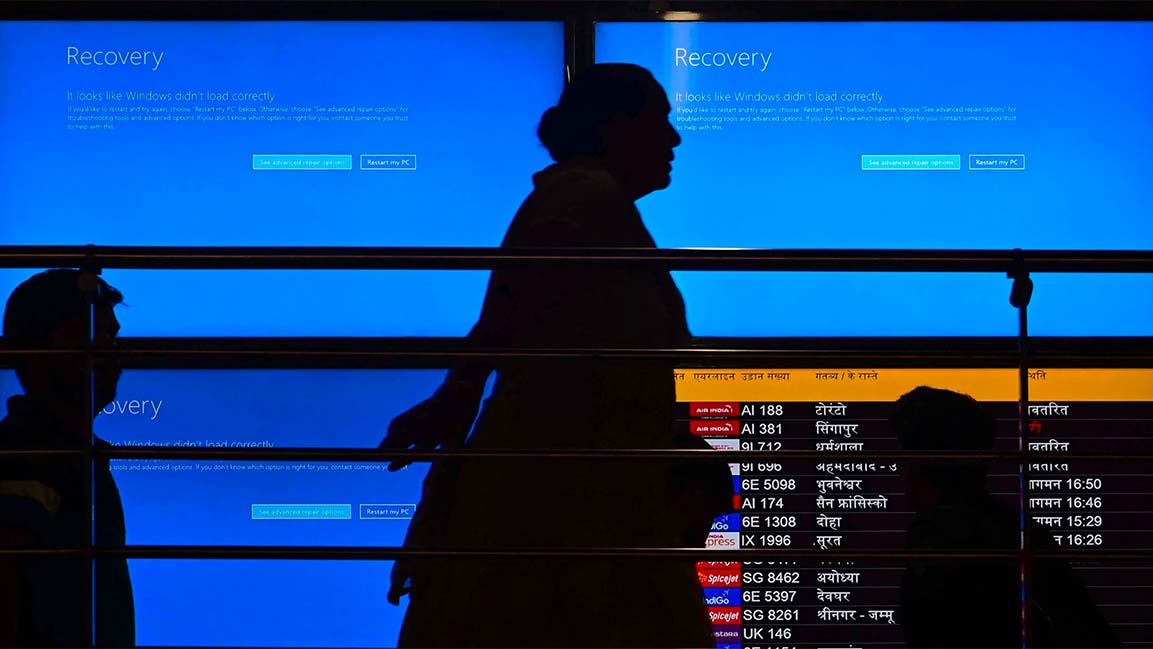- | 10:30 am
The Middle East has a shortage of mental healthcare experts. Can AI and big data help?
Delivering treatment for mental illness is a challenge in a region. On World Mental Health Day, we ask the experts if intelligent mental health can fill the gaps.

Would you try AI-administered cognitive behavioral therapy? Or talk to a bot for counseling? While the shortage of expert mental healthcare providers in the Middle East is a cause of concern, big data and AI are becoming essential tools to enhance care delivery.
AI and big-data technologies in mental health have excellent potential for personalizing treatment selection, monitoring for relapse, detecting and helping to prevent mental health conditions, and even delivering treatments.
According to a Pervasive and Mobile Computing study, AI had a 92% accuracy in detecting anxiety symptoms.
Big data and AI are also utilized in the diagnosis of mental disorders. Specific features of mental health illness could be recognized with machine learning techniques from the data collected by smartphones and wearables.
“Intelligent health can provide more accurate data about a patient, which can be obtained from self-reported information about their environment, monitoring via sensors such as wearables, and data mining technologies accessing data from electronic health records,” says Viktorija Aksionova, founder of Abu Dhabi based MindTales.
If apps or devices show that a person is sleeping poorly or gaining weight, these could inform a psychiatrist’s diagnosis.
While the application of big data analytics and AI has created great opportunities to improve the detection and diagnosis of mental health problems, bringing down costs and accelerating research and development, there are ethical concerns as AI takes a bigger decision-making role and mental health data includes a lot of sensitive information. “There are also concerns regarding the interpretation of data, which might lead to misdiagnosis,” adds Aksionova.
“We understand that stigma still exists in our communities, so we ensure that we’re paying close attention to the confidentiality of users,” says Khawla Hammad, founder and CEO of Takalam, a UAE based online mental well-being counseling platform.
“Privacy is our number one priority,” adds Khawla. “We value that we are trusted by the companies and employees we work with. We’ve had a few situations where companies have asked us to provide employee data. We never have and never will jeopardize users’ trust.”
Since MindTales’ launch in 2020, the app has had more than 120,000 users with concerns ranging from anxiety to insomnia. According to Aksionova, despite the app’s success in offering mental wellness services, “We cannot and do not aim to replace psychological services or therapy.”
“The platform issues alerts if individuals receive high scores on their anxiety and worry tests, and recommends specific exercises to help address them. Extreme cases such as threats of self-harm or suicidality should be referred to psychologists or psychiatrists,” she adds.
PERSONALIZED MEDITATION AND MINDFULNESS
Meditation and mindfulness apps are gaining popularity in the region. Several studies have proven the benefits of mindfulness, including lowered blood pressure and cortisol levels, improved moods and reduced incidences of anxiety, leaving people more focused and self-aware.
Nafas, a UAE-based meditation app focused on reducing stress, anxiety, and insomnia helps people with various programs focused on work and productivity. “We aim to let our users have a breather when needed or a boost in productivity,” says Saif Al Essai, founder of Nafas.
“Our biggest challenge as humans is that we cannot completely disconnect once we leave the office, and those thoughts and stress leak into the rest of the day.”
“Personalization is crucial in any app, especially if we want to build new habits and integrate them into our routine,” adds Al Essai.
By bringing data together and having an analytics system, mental health experts can deliver answers to the questions patients are asking, and give even more context and information to help broaden their understanding.
According to Al Essai, the app’s success is measurable in terms of its impact on people’s lives.“We have over 50,000 people who have given us their feedback”. He shares two incidents, one of a 12-year-old struggling with panic attacks whose therapist recommended the app to her and another of a person battling suicidal tendencies, both of whom have made significant progress with Nafas. “Such stories are the success of our platform,” he adds.
ON TABOOS THAT ARE BETTER FORGOTTEN
Almost everywhere in the world, mental health is taboo, and the Middle East is no exception. There is progress, but work remains to be done. A more holistic picture of patients can help reduce mental health stigma.
“Being too busy for meditation is a common refrain. If you feel you are too swamped with life that you can’t meditate, then it would be best if you had it the most,” says Al Essai.
“In some companies, the fear of creating a barrier against promotions still exists if there’s a record of an employee accessing mental well-being support. We help facilitate well-being solutions between companies and their employees,” says Khawla.
Perceived stigma can prevent people from talking about their mental health and seeking support because they’re worried about negative consequences. “It can also hinder people from pursuing other important life opportunities, such as seeking a job because they’re worried they may be judged unfairly or discriminated against due to their mental health condition,” says Aksinova. “As a result of this stigma, many employees suffer in silence, often from the fear that their reputation, relationships, or job status could be in jeopardy if they disclose that they’re battling a mental health condition.”
Crucially, more research and data are needed to ascertain the scale of the Middle East’s mental-health challenge to dedicate adequate resources.
While privacy concerns loom, the prevalence of mental health issues– 200 million Arab youth have depression and anxiety—calls for more innovative solutions. Experts believe that AI will grow rapidly in psychiatry and therapy, supplement clinicians’ efforts to spot mental illnesses earlier and improve treatments for patients.
Al Essai says that by 2023, users can expect, “a rollout of new features from the ability to meditate in groups, and finishing challenges with friends to winning badges with recommendations based on historical data and AI analysis.”








































